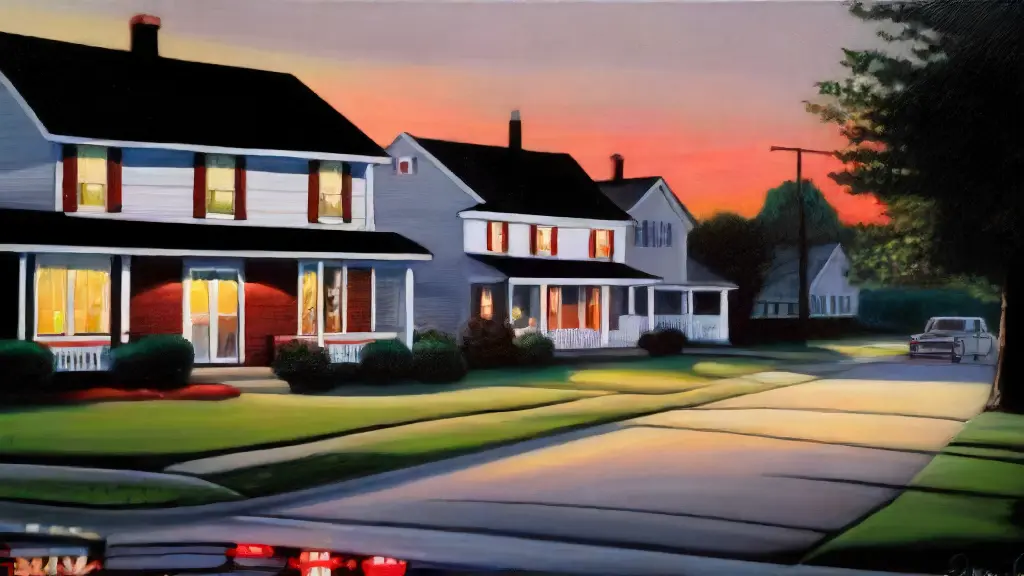Foreclosures and Short Sales Impact

Local real estate markets are increasingly sensitive to economic downturns, making every foreclosure and short sale a significant indicator of the neighborhood’s underlying housing conditions.
Main Header 1: The Ripple Effect of Foreclosures and Short Sales
A single foreclosure or short sale can have a profound impact on the surrounding community, triggering a ripple effect that resonates throughout the real estate market.
Main Header 2: Home Valuation Hit
Foreclosures and short sales often result in a home valuation reduction, decreasing neighborhood property prices by 1-5% on average.
Home Valuation Reduction, Market Pressure, Housing Market Volatility, Underwater Mortgages, Homeowner Defaults, Price Depreciation, Market Fluctuations, Negative Equity, Forced Sales, and House Depreciation.
Why Do Foreclosures Affect Home Value
The ripple effect of foreclosures can be far-reaching, impacting not just the individual property but also the surrounding neighborhood and its residents. Foreclosures can significantly decrease a home’s value and sales prices by reducing demand and creating a negative perception of the neighborhood.
A single foreclosure can drop surrounding property values by 10-20%, and saturated neighborhoods can see declines of up to 50%.
Foreclosures do not occur in a vacuum; they signal broader market changes and shifts in buyer behavior.
Neighborhoods with high foreclosure rates often struggle to attract buyers and maintain property values. As foreclosed homes flood the market, listing prices drop, and sellers must lower their prices to attract buyers.
The longer these inventory sits, the more it devalues the neighborhood and its properties. Real estate agents and investors consider these factors when evaluating a home’s worth, focusing on location, condition, Decreased Sales Price, Reversed Appreciation, Home Price Decline, Listing Probability, Sales Pressure, Market Conditions, Credit Score Impact, Foreclosure Auctions, Demographic Shifts, and Neighborhood Decline.

How Do Short Sales Impact Neighborhoods
A neighborhood’s delicate ecosystem can be severely impacted when residents struggle financially, resulting in a ripple effect that resonates throughout the community and leads to a greater Market Instability.
How Do Short Sales Impact Neighborhoods
- Brief Background: A short sale occurs when a homeowner sells a property for less than the outstanding mortgage balance, typically due to financial distress or other economic factors.
- Immediate Impact on Neighborhood
- Foreclosures and short sales can lead to a surge in closed listings, which can become eyesores and decrease property values in neighborhoods, causing Market Assessments to fluctuate drastically. According to a recent study, neighborhoods with a high number of vacant homes experience a 20% decrease in property values, resulting in a significant Financial Gap between home prices and Local Market Volatility, ultimately leading to Market Instability, Closed Listings, and Real Estate Price Adjustments that can cause Homeowner Stress and Deteriorated Properties.
Impact of Short Sales on Neighborhoods
- Neighborhoods with a high number of vacant homes experience a 20% decrease in property values.
- Foreclosures and short sales can lead to a surge in closed listings, causing Market Assessments to fluctuate drastically.
- A significant Financial Gap can occur between home prices and Local Market Volatility, leading to Market Instability.
- Homeowner Stress and Deteriorated Properties can result from Real Estate Price Adjustments caused by Market Instability.
What Causes Housing Market Volatility
The housing market’s unpredictable fluctuations have been a long-standing challenge, affecting numerous households and investors worldwide. A turbulent market can easily lead to economic instability and financial stress for many individuals.
Potential buyers and sellers must remain vigilant about the ever-shifting dynamics, making it crucial to understand the underlying causes of market fluctuations.
What Causes Housing Market Volatility
A primary contributor to this volatility is the impact of risky mortgages, which can lead to a significantly higher default rate, ultimately resulting in foreclosed homes and influencing current market conditions.This can create a ripple effect, causing the market to become increasingly unstable as more properties are sold at lower prices.
What are Foreclosures and Short Sales?
Foreclosures occur when a homeowner is unable to pay their mortgage, prompting the lender to seize the property. In such situations, a homeowner may opt for a short sale, selling their property for less than the outstanding mortgage balance, often due to Current Market Conditions, Desperation Sales, Risky Mortgages, Home Appreciation Rates, Valuation Discrepancies, Foreclosed Homes Issue, Land Market Impact, Appraisal Value, Regional Housing Market, and Market Pressure Waves.What Happens to Mortgages in a Decline
Economic downturns often lead to a stagnant market, causing a ripple effect on various sectors, including the mortgage industry.
The real estate market can be unpredictable, and fluctuations are a common occurrence.
When homeowners face reduced property values, decreased equity, and increased interest rates, the stability of their mortgage is compromised.
This is often due to factors including overbuilding and economic downturns, leading to lower property investment and reduced lender valuations.
Valuation influencers such as changes in the local economy and shifts in consumer behavior can also contribute to this decline.
In a stagnant market, property values decrease, and homeowner security is compromised due to reduced equity.
Increased interest rates also become a concern, leading to higher mortgage payments and a tightened budget. Homeowners may face the challenge of making ends meet, as their disposable income is reduced. In a declining mortgage environment, households with compromised properties may struggle to sell their homes at a fair price, ultimately facing significant financial losses due to over-supply, value reduction, stagnant market conditions, and decreased valuation influences, leading to a real estate plateau and increased investment risks, which may require households to reduce their budget and accept discounted purchase offers in order to navigate the lenders’ decision to reevaluate their property valuations.
Mortgage Market Decline
- Overbuilding and economic downturns can lead to lower property investment and reduced lender valuations.
- Changes in the local economy and shifts in consumer behavior can contribute to a decline in property values.
- Increased interest rates can lead to higher mortgage payments and a tightened budget for homeowners.
- Households with compromised properties may struggle to sell their homes at a fair price, leading to significant financial losses.
How Do Defaults Affect Home Prices
Mortgage defaults can set off a chain reaction, negatively impacting the housing market through a complex interplay of factors. Defaults can lead to Loss of Home Value, making it a significant concern for homeowners and real estate investors alike.
Financial Hardship resulting from missed payments and potential bankruptcy often follows, further damaging homeowners’ credit scores.
Defaults can exacerbate existing market trends, triggering a House Pricing Fluctuations that affect neighboring properties.
In extreme cases, defaults can lead to Subprime Mortgage Crisis-like conditions, causing widespread market fluctuations. Homeowners struggling to make payments often find themselves facing Auction Listings that bring down neighborhood property values, adding to the market’s Housing Market Pressure.
The consequences of defaults on homeowners are far-reaching. Not only do defaults lead to Financial Hardship and Loss of Home Value, but they also have a lasting impact on borrowers’ credit scores, contributing to the Subprime Mortgage Crisis, exacerbating Home Market Shifts, and triggering House Pricing Fluctuations, with far-reaching implications for Market Trends Analysis, and resulting in LongTerm Debt, increased Auction Listings, and exacerbated Housing Market Pressure, due to the danger of Incorrect Valuation.
What Triggers Market Fluctuations
Market fluctuations are as natural as the ebbs and flows of the ocean tides, influenced by a multitude of underlying factors that can ebb and flow the value of properties and the broader market conditions. When the alignment between supply and demand is off-kilter, a ripple effect can be triggered in the real estate market, sending shockwaves that reverberate through neighborhoods and communities.
Influences on Market Fluctuations
Housing Inventory and Supply
- Seasonality has a profound impact, with shifts in the calendar leading to changes in homebuying and selling behaviors. The time of year can affect the housing inventory, with Overpriced Listings.
Influences on Market Fluctuations
- Seasonality has a significant impact on the real estate market, with changes in the calendar affecting homebuying and selling behaviors.
- The time of year can lead to an imbalance in housing inventory, resulting in overpriced listings and decreased sales.
- A mismatch between supply and demand can trigger a ripple effect in the real estate market, causing shockwaves in neighborhoods and communities.
- Market fluctuations are influenced by a multitude of underlying factors, including changes in interest rates, economic conditions, and demographic shifts.
Why Does Negative Equity Occur
The precarious balance of homeownership can be upset by a range of factors, leaving many facing the daunting reality of owing more on their home than its current worth. This phenomenon, often referred to as being underwater on a mortgage, can have far-reaching consequences for individuals and families.
Several key factors contribute to this situation, including house depreciation factors that can result in a decline in home value, increased mortgage debt that can occur when interest rates rise, and a decrease in sales price due to neighborhood changes that can impact property values.
When real estate market fluctuations lead to a drop in property values, homeowners are left owing more than the market value, creating a negative equity situation.
Mortgage debt continues to grow as industry trends and market forces drive up interest rates, further exacerbating the negative equity problem. Homeowners with adjustable rate mortgages see their payments reset, which can lead to a lowered property value due to the difficulties in selling their homes in a competitive market.
How Do Forced Sales Influence Prices
The dynamics of local real estate markets are heavily influenced by the resale value of homes, which can be significantly impacted by the sudden introduction of distressed properties.
The Ripple Effect of Forced Sales
The ripple effect of forced sales on the surrounding neighborhood is multifaceted.When a distressed property is sold at a discounted price, it creates a negative impact on nearby homes.
The assessed value of neighboring homes may decrease by 10-20% due to the sudden influx of comparable properties on the market.
Market Conditions and Housing Market Analysis
Housing market conditions, such as Homebuyer Sentiment, play a significant role in the impact of forced sales on property prices.
Low interest rates and a high supply of homes can amplify the effects of forced sales, driving prices down. Conversely, a strong economy and high demand can lead to a decrease in Homebuyer Sentiment, Property Resale Value, and Housing Market Analysis, resulting in decreased Homebuyer Confidence, Real Estate Market Sentiment, and an increase in Homeowner Anxiety, Property Market Volatility, and a negative impact on Home Value Trends, as well as Regional Economic Trends.Key Statistics on Forced Sales Impact
- Forced sales can decrease the assessed value of neighboring homes by 10-20%.
- Low interest rates and high supply of homes can amplify the effects of forced sales, driving prices down.
- A strong economy and high demand can lead to a decrease in homebuyer sentiment, property resale value, and housing market analysis.
- Forced sales can create a ripple effect, negatively impacting the surrounding neighborhood and local real estate market.

